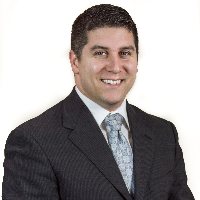MONDAY, FEBRUARY 22, 2016
 |
Trevor Tarpinian, CEPA®
Licensed Insurance Counselor
. . . . . . . . . . . . . . . . . . . . . . . . . . . . .
trevor@tfi4insurance.com
|
|
Disability Insurance 101: Own-Occupation Definition
|
 |
How your disability income policy defines disability is crucial. I will summarize this entire blog post in this paragraph and give more detailed explanation below. The heart of the issue is this: you want the definition of "disability" to cover as many scenarios as possible. You don't want it covering as little as possible. .
|
|
In the world of disability policies, you have two general categories of definition: "own-occupation" and "any-occupation." "Any occupation" is the more restrictive definition. It says "if you can't do any occupation, then we'll pay out a disability benefit." Compare that with an "own occupation" definition that states "if you can't do your own occupation, regardless of whether your ability to work another job, we'll pay out a disability benefit." Let's jump into more detail now.
|
|
|
[We want to give] the client the most scenarios of coverage possible
|
|
Any Occupation:
Let me paraphrase this definition for you: "We (the insurance company) will pay disability benefits if you are unable to perform any occupation." Can you sit at the circulation desk of your city's library and make money? If so, you're not disabled according to this definition. Can you greet customers at Walmart from a wheelchair? If so, you're not disabled according to this definition. I am generalizing for the sake of illustration. What you need to know is that this is the most limited definition of disability. If gives you the fewest scenarios possible. If your employer offers group long term disability benefits, there is a very high chance the group policy's definition of disability is "any-occupation." See my Practical Application points below.
True Own-Occupation:
Allow me to again paraphrase: "We (the insurance company) will pay disability benefits if you are unable to perform the material and substantial duties of your own occupation at the time of sickness or injury." You would still be eligible to receive benefits under this definition if you had the ability to work in a different occupation. This is the most liberal definition of disability and the exact opposite of any occupation coverage. It gives the client the most scenarios of coverage possible. It was a popular definition offered by companies in the mid 20th century. Due to high claims rates, most companies stopped selling policies with true-own occupation definitions, limited the benefits, or pulled out of the disability market completely.
Regular Occupation:
This is another (more recent) term for true own occupation coverage. Many companies now offer it as a rider to endorse a modified own occupation contract (see below). It may also serve as the base definition of disability for a company's policy.
Modified Own-Occupation:
This definition generally uses the "true own-occupation" definition and qualifies it with one more restrictive clause: "We (the insurance company) will pay disability benefits if you are unable to perform your own occupation and are not engaged in any other occupation." It might also read "We (the insurance company) will pay disability benefits if you are unable to perform the substantial and material duties of your occupation and are not working." The definition is still based on your own occupation, but you can't be working or bringing in an income. No double dipping allowed. If you can't perform surgery and are bringing in an income teaching in medical school, the benefits from a policy like this would shut off if they were paying. This gets you the same definition of "own-occupation." The difference is, you can't work in a different field of work and receive disability benefits at the same time like you potentially could with a "true own-occupation."
|
|
Transitional Own-Occupation:
I typically see this as a rider rather than the definition of a base policy. This supplements a policy with a "modified own-occupation" definition and allows an insured to work in another occupation (if they're able) while disabled from working in their own occupation. It generally reads like this: "We (the insurance company) will pay disability benefits if you are unable to perform the substantial and material duties of your occupation, but are working in another occupation." Benefits are typically paid up to 100% of prior earnings from a combination of current earnings and other disability disability benefits from other sources. Remember, "modified own-occupation" states you can't do your own occupation and aren't working in any other occupation. The transitional occupation rider allows you to essentially scratch out that second qualification on the "modified own-occupation" definition. Transitional own-occupation allows you to double dip, just like a true own-occupation or regular own occupation definition. If you can't do your work as a doctor or lawyer, the company will pay out, regardless of whether you are bringing in an income teaching classes at med or law school. Transitional own-occupation coverage will not let you earn more than 100% of previous earnings, unlike a true own-occupation or regular occupation, which could theoretically allow you work and collect disability benefits that add to more than 100% of your income. The instances of this are infinitesimally small. Among companies that no longer offer true own occupation coverage, transition own occupation and regular occupation will get the job done.
|
 |
|
Sundry Thoughts:
I've seen other blogs highlight the demise of "true own occupation" and commiserate about a golden age in the past when everyone had "true own occupation." They then go on to criticize most contemporary policies and warn people that they need to be wary of the contract they're buying. This is a fair warning, but there are two other important facts that I don't see stated in any of these blogs or editorials.
First, most top-tier companies may not have a "true own occupation" policy straight out of the package anymore, but they can still accomplish this. A modified own occupation contract with a transitional occupation rider endorsed on the policy effectively produces "true own occupation" coverage in function. My point is that companies that do disability insurance well all get the job done at the end of the day. They just may go about it slightly differently. Saying a company doesn't offer a base policy with "true own-occupation" definitions isn't very fair, because they may have options in place to accomplish this goal. At this point, you need to trust that your financial representative thoroughly knows the company and policy you're applying for.
|
 |
Second, for many companies and most policies, the occupation class of the insured determines whether the base policy will have an "own-occupation" or "any-occupation" definition. I've seen companies offer "own-occupation" as the base definition of the policy for only 4A or 4M occupational classes or higher. Any other occupation classes (like 2A and 3A) get an inferior "any-occupation" base definition. So the base definition of disability depends on the company and occupation class.
|
|
Practical Application:
- if you have changed occupations recently, you may want a "transitional occupation rider" if your policy has a modified own-occupation definition of disability
- If you have changed occupations and have an individual disability policy, your current "any-occupation" or "own-occupation" definition may no longer suit your needs.
- many employer-paid group plans insure the employee for 70% of their salaried income and give "own-occupation" definition for only 2 years. This means, if you become disabled and go on claim, the group policy will define disability as an event in which you cannot do your own occupation. But this definition only lasts 2 years. After that, the definition switches to "any-occupation," and the policy will only pay out if you can't work in any occupation. This is common in employer-paid group policies
Click the "contact us" button and I can help you identify if you have an "own-occupation" definition of disability in either your personal or group policy.
|
MORE ARTICLES FROM TFI INSURANCE
|
Trevor's Blog
|
Business Insurance Blog
|
Mark's Blog
|
|
Disability Insurance Blogs
|
|
2 Comments
Donald M Fink said...
Reviewing your disability coverage helps you stay prepared financially,Physicians Savvy About Disability Insurance Protection Typically Dont Adjust Policy as Careers Grow.so take it policy thats way which benifits in present and future.
FRIDAY, AUGUST 05 2016 1:36 AM
Donald M Fink said...
Thank you for your post!This tutorial is fabulous! Lots of great info including to this post, Income protection is essentially disability insurance. It ensures you are protected if you lose one of your most valuable assets-the ability to earn income.disability income benefits plan on your own can help protect your financial security by helping you cover all monthly expenses.
MONDAY, AUGUST 29 2016 3:57 AM
Post a Comment |
|
Required
|
|
Required (Not Displayed)
|
|
Required
|
All comments are moderated and stripped of HTML.
|
|
|
|
|
|
NOTICE: This blog and website are made available by the publisher for educational and informational purposes only.
It is not be used as a substitute for competent insurance, legal, or tax advice from a licensed professional
in your state. By using this blog site you understand that there is no broker client relationship between
you and the blog and website publisher.
|
Blog Archive
2022
2021
2018
2017
2016
2015
|